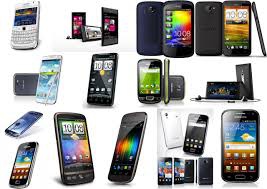The on-going power crisis has revitalised commercial phone-charging business in major commercial centres of the capital, a B&FT survey has shown.
The current power rationing, as a result of supply deficit of about 250 megawatts, has meant that domestic consumers are unable to charge their electronic gadgets when there are power outages in their respective homes.
Operators of these phone charging points, charge between 50 pesewas and 70 pesewas per phone charged for five-minutes and make as much as GH¢20 per day.
Issah Ibrahim, who runs a phone charging business on Tip Toe Lane, a busy commercial area at the Kwame Nkrumah Circle in Accra, said: “I charge 50pesewas per person, and on the average I get about 10 people stopping by to charge their phones. The numbers can increase to 20-25 if the business is good and I can make around 20GH? a day”.
Another operator, Blay Joel, said he charges 70pesewas per person and records an average of 10 people charging their phones.
Kweku Rockson, a phone-charging point operator at the Orion Cinema area, said due to high unemployment the venture is a good source of income for him. “It is better for me to do this than go and engage in something bad or criminal; besides I can afford a meal a day through this business,” he said.
Operators are not immune from the power rationing, and this affects their business and how much they charge their customers. “When the lights are out, we use generators and people come in to charge their phones, " Blay Joel said.
One operator at the Kaneshie lorry station at the Nkrumah Circle, Kennedy Ansong, said he buys 15GH? worth of fuel to run his business, and feels the power cuts when remedied will make business thrive.
In as much as the business may not be sustainable long-term, phone-charging operators are meeting people half-way as far as keeping their phones and smartphones 'alive'. "People stop by and charge their phones; it is a way we help them to communicate," an operator said.
It also offers an employment avenue for many who have nothing to do. A cursory look at the Nkrumah Circle station alone sees over 12 operators: perhaps a business worth venturing into.
Erratic gas supply from Nigeria through the West Africa Gas Pipeline, which now hovers around 70million standard cubic feet per day, and poor rains last year meant that power transmitter Ghana Grid Company Limited (GRIDCo) had to shed load to maintain the system.
According to a data released by the National Communications Authority (NCA), Ghana -- with an estimated population of 25.9 million -- has a mobile phone penetration rate of 106%, affirming concerns that the prevalence of multi-simming, which happens when one subscriber owns more than one SIM card, is widespread among mobile phone users.
Click to view details



Business News of Wednesday, 14 January 2015
Source: B&FT
Power crisis spurs phone-charging business

Entertainment















